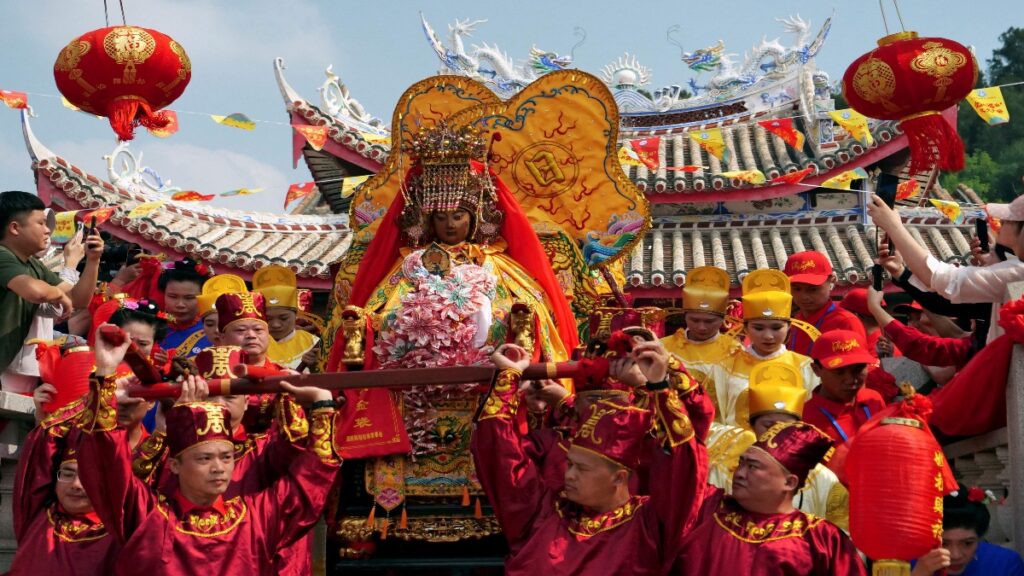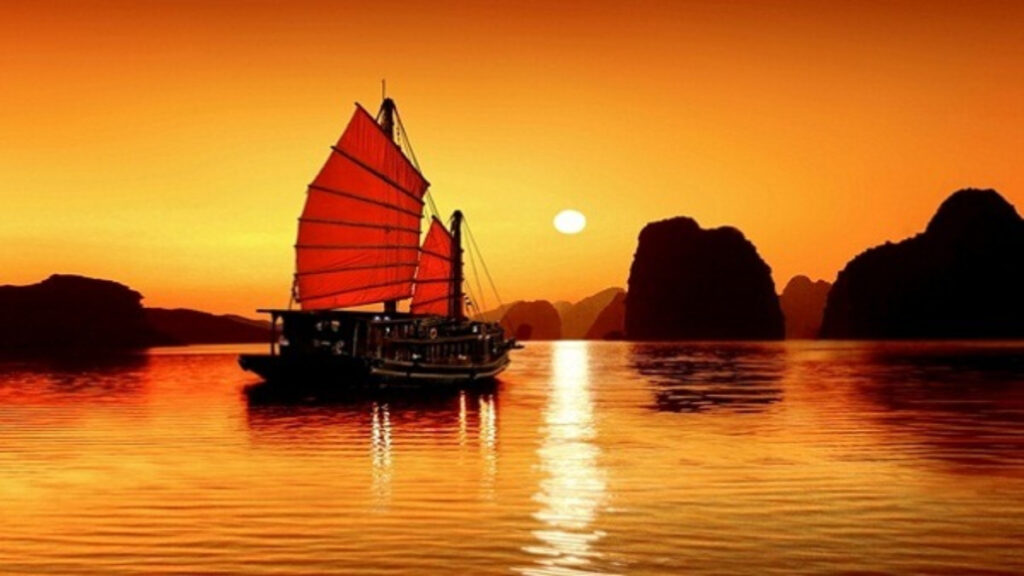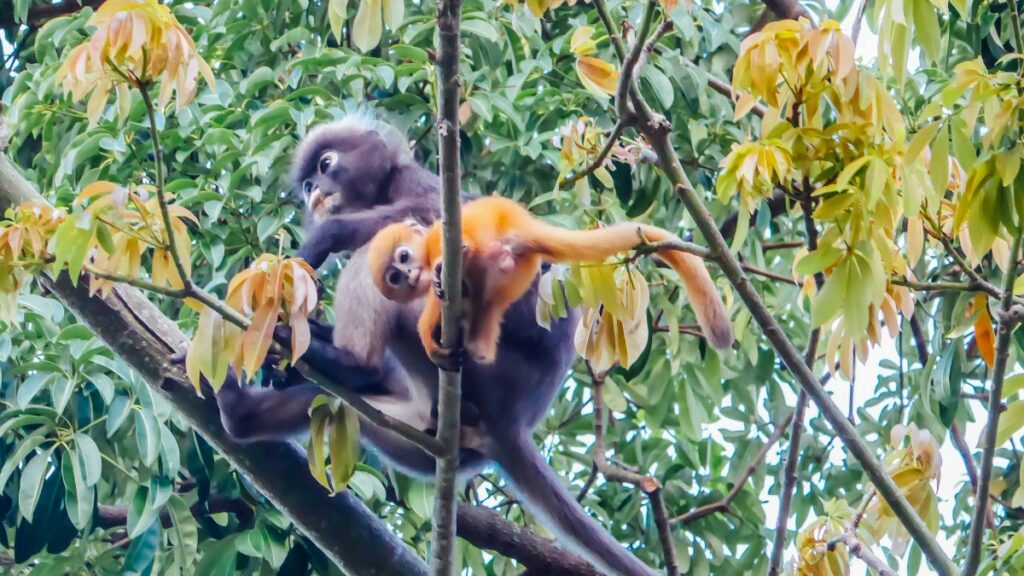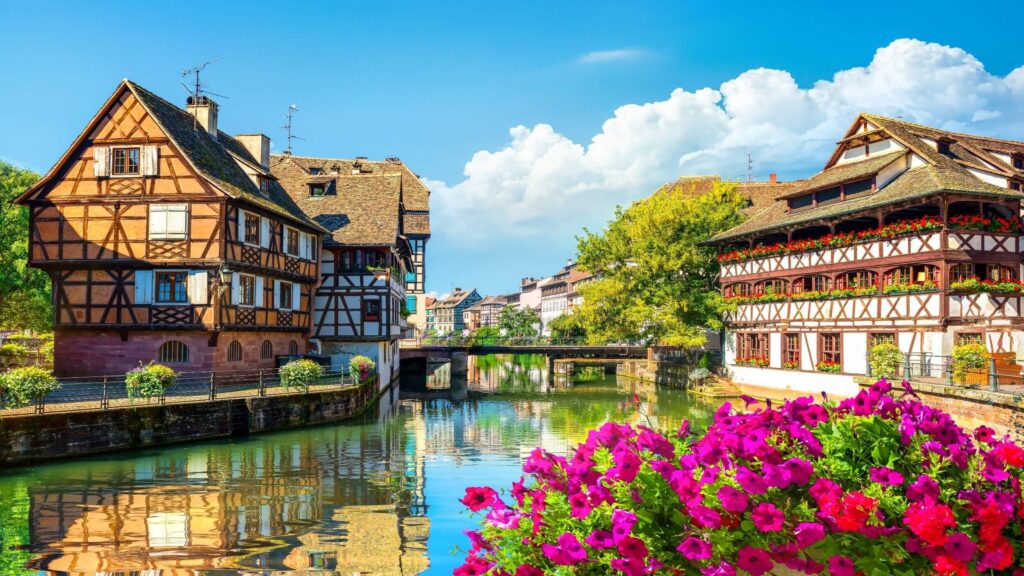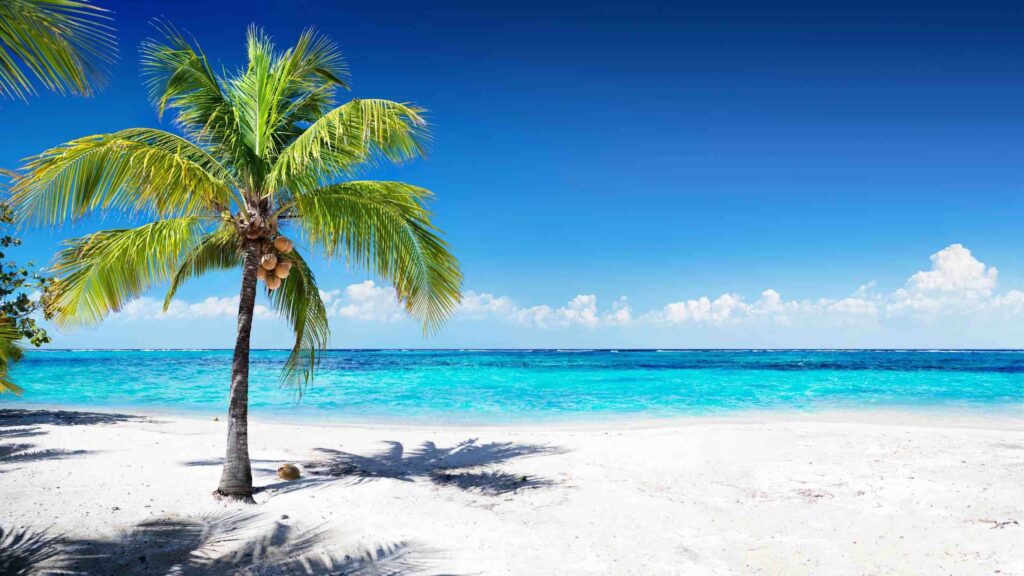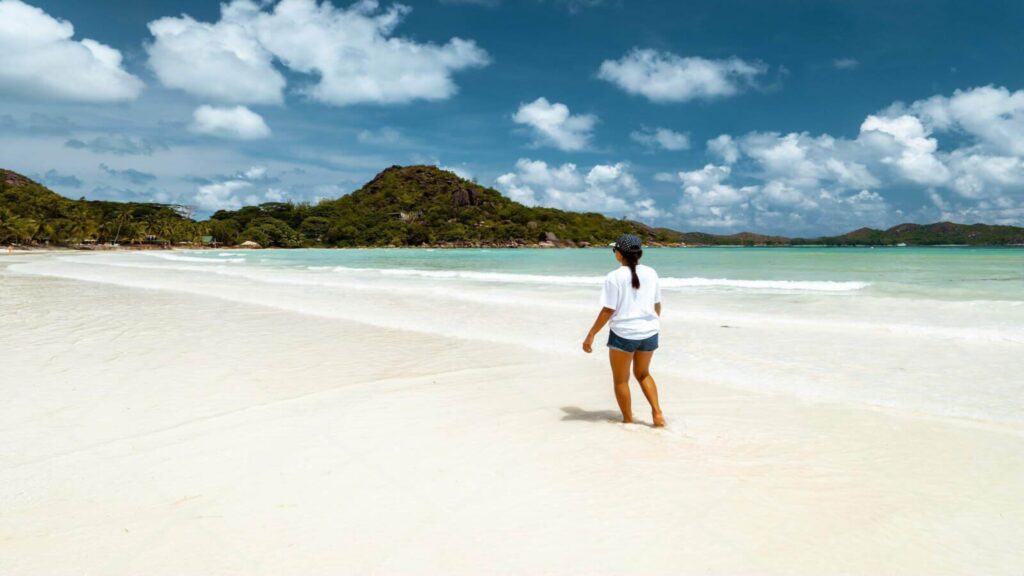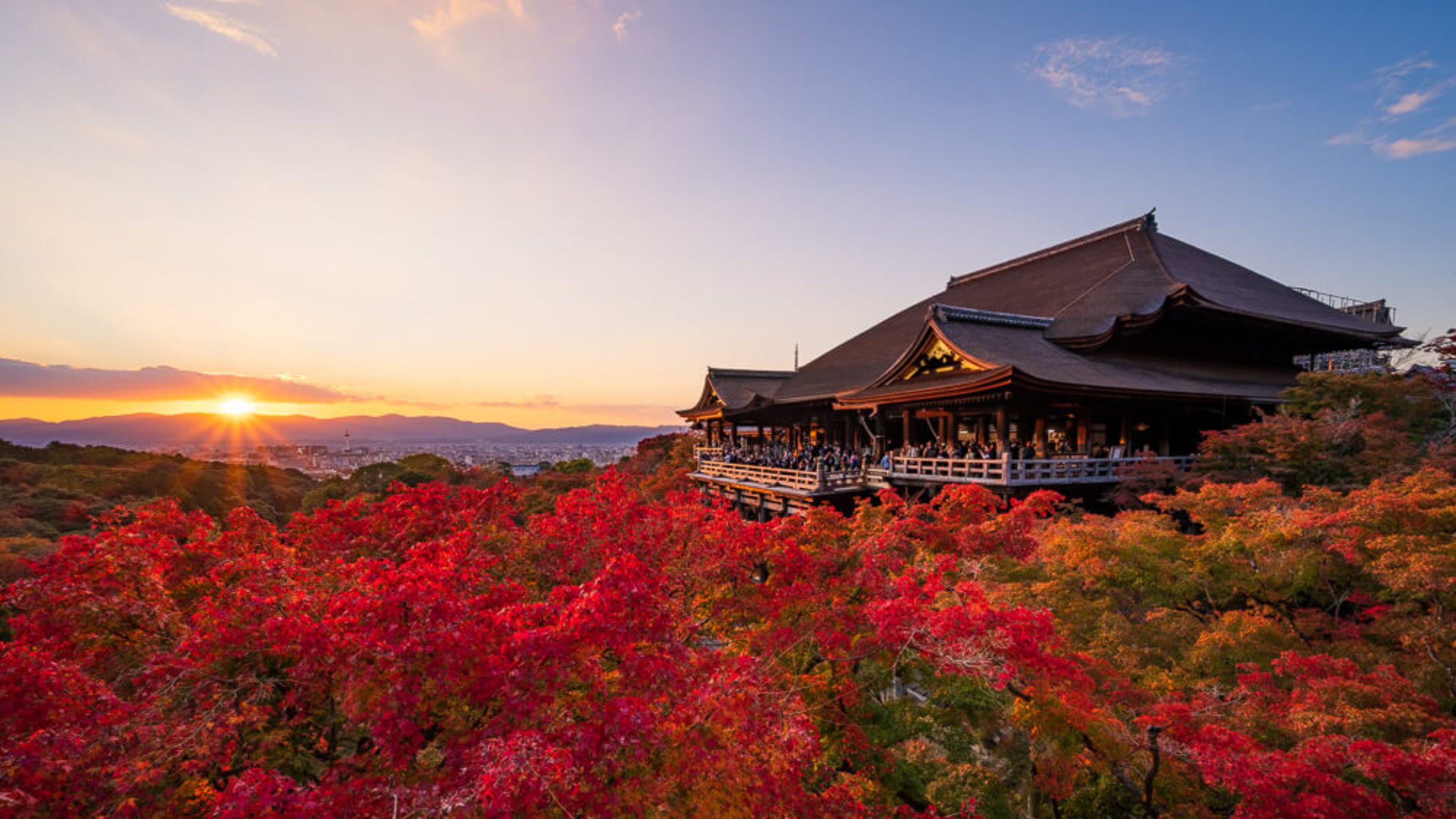
Let me take you on a journey through Japan’s captivating urban landscapes. I’ve wandered the neon-lit streets and ancient temple grounds extensively. The coolest cities in Japan offer a perfect blend of tradition and innovation. Between bustling metropolises and peaceful historical hubs, you’ll discover unforgettable experiences. These memories will stay with you long after your return home.
Kyoto: The Cultural Heart of Japan
Walking through Kyoto feels like going back to the past. Having served as Imperial Japan’s capital for over a millennium, this city preserves Japan’s cultural heritage unlike anywhere else. Plan your visit during spring (late March to early April) or autumn (November) to witness the city’s famous cherry blossoms or vibrant fall foliage.
Temple enthusiasts should allocate at least three days to explore Kyoto’s 2,000+ temples and shrines. The gleaming Kinkaku-ji (Golden Pavilion) opens at 9 am, yet I recommend arriving right at opening to capture photos before the crowds descend. Its gold-leaf exterior reflecting in the surrounding pond creates a scene straight from a fairytale.
No Kyoto visit would be complete without the iconic Fushimi Inari-taisha shrine. Thousands of vermilion torii gates create a stunning pathway. Unlike most attractions, this shrine remains open 24 hours. I recommend visiting around 7 am or after 6 pm. This timing helps avoid the midday tourist surge. You’ll enjoy a more contemplative experience as you ascend the mountain path.
Traditional experiences abound throughout the ancient capital. The Gion district offers glimpses of authentic geisha culture. Remember to be respectful if you spot these cultural artisans. Try a hands-on tea ceremony workshop at Camellia Tea Ceremony. Skilled instructors will guide you through this refined art form. These sessions typically last about 45 minutes and provide cultural insights.
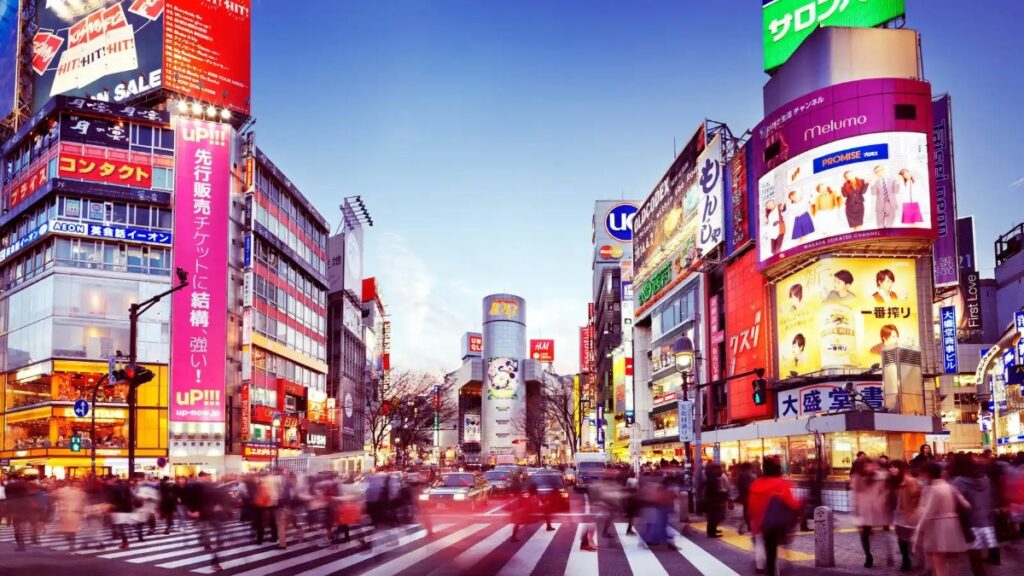
Tokyo: One of the Coolest Cities in Japan for Urban Explorers
Arriving in Tokyo feels like stepping into another dimension. This sprawling metropolis serves as Japan’s vibrant capital, having evolved from its humble beginnings as a small fishing settlement. During my visits, I’ve found that Tokyo rewards early risers – try reaching Meiji Shrine around 7:30 am to experience its serene gardens without crowds.
The city’s neighborhoods each tell their own unique story. Wander through Asakusa to discover the magnificent Sensō-ji Temple, dating back to 645 AD. I suggest visiting in the early evening around 5 pm when the five-story pagoda becomes illuminated, creating a magical atmosphere that’s distinctly different from the daytime experience.
Food enthusiasts will find paradise in Tokyo’s culinary landscape. With the highest concentration of Michelin stars globally, the city offers everything from high-end sushi experiences to humble street vendors. Tsukiji Outer Market remains one of my favorite morning destinations – arrive by 9 am to sample the freshest seafood imaginable while watching skilled chefs prepare traditional dishes with remarkable precision.
When night falls, Tokyo transforms yet again. The Shibuya and Shinjuku areas light up with bright colorful signs and many places to have fun. Consider taking the elevator to the free observation deck at the Tokyo Metropolitan Government Building around sunset (typically 5-6 pm) for breathtaking views across the city as it transitions from day to night.
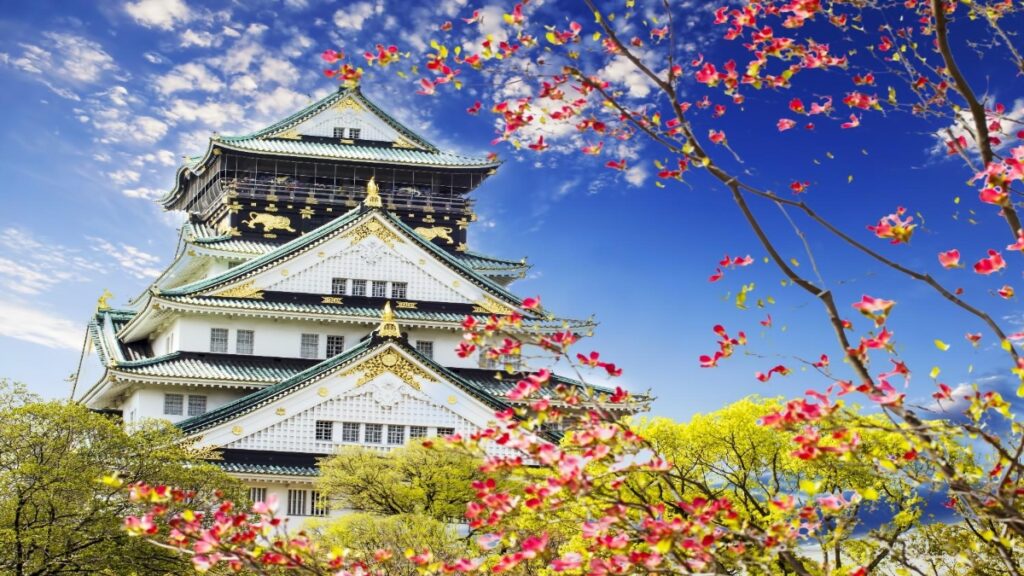
Osaka: The Kitchen of Japan
Food defines Osaka’s identity in ways that set it apart from other Japanese cities. Known affectionately as “Japan’s kitchen,” this mercantile hub embraces a philosophy locals call “kuidaore” – eating until you’re nearly bankrupt! I recommend dedicating evenings to exploring the Dotonbori district, where food stalls and restaurants line the canal.
The iconic Osaka Castle deserves at least a half-day visit. Arriving around 9 am helps beat the crowds while giving you ample time to explore both the impressive fortress and its surrounding park. During cherry blossom season, typically early April, the castle grounds transform into one of Japan’s most picturesque settings.
Night owls will appreciate Osaka’s lively after-dark personality. Unlike Tokyo’s fancy nighttime fun, Osaka gives you a more real and casual experience. The Shinsekai district delivers an atmospheric glimpse into retro Japan, with its illuminated streets best explored after 7 pm when local eateries fill with working-class residents enjoying unpretentious comfort food.
Culinary adventurers should seek out Osaka’s signature dishes. Takoyaki (octopus-filled batter balls) from Abeno Takoyaki Yamachan and okonomiyaki (savory pancakes) at Mizuno showcase authentic regional flavors. I’ve found that visiting these establishments between 2-5 pm helps avoid the longest queues that form during peak dining hours.
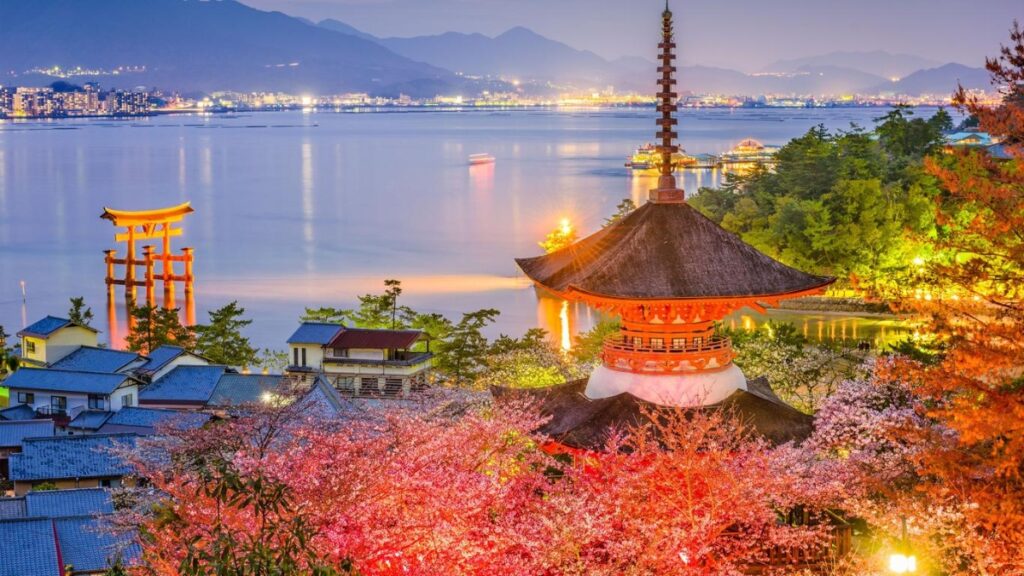
Hiroshima: Among the Coolest Cities in Japan for History
History and beauty coexist remarkably in Hiroshima. While many associate this city solely with the 1945 atomic bombing, today’s Hiroshima stands as a testament to human resilience and a powerful advocate for peace. The Peace Memorial Park opens at 8:30 am, and I recommend arriving early to fully absorb its profound significance before the arrival of larger tour groups.
Beyond the memorials, Hiroshima offers surprising delights. The local specialty, Hiroshima-style okonomiyaki, features layers of ingredients rather than the mixed style found in Osaka. Okonomimura houses dozens of stalls preparing this dish, creating a friendly competitive atmosphere that keeps quality exceptionally high.
A quick boat trip from the city takes you to Miyajima Island. Here stands the famous “floating” torii gate of Itsukushima Shrine. Time your visit according to the tides for different experiences. High tide creates the magical floating effect. Low tide allows you to walk right up to the massive gate. Check local tide schedules before your visit. Plan accordingly for your preferred viewing experience.
Active travelers should consider the hike up Mount Misen on Miyajima. Starting early around 8 am gives you plenty of time for the two-hour ascent, offering spectacular panoramic views across the inland sea. The descent brings you past additional shrines and through forests populated by friendly deer that have become accustomed to visitors.
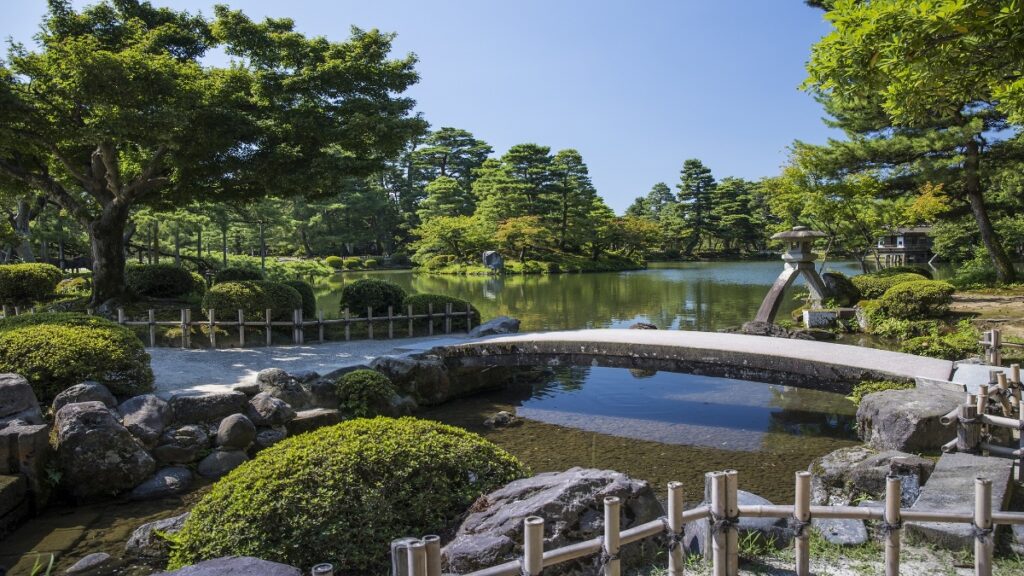
Kanazawa: Japan’s Preserved Historical Gem
Few places preserve Japan’s Edo period (1603-1868) atmosphere as beautifully as Kanazawa. Located on the Sea of Japan coast, this cultural jewel escaped the bombing during World War II, leaving its historical districts remarkably intact. I suggest starting your exploration at Kenroku-en Garden when it opens at 7 am, particularly during seasonal changes when morning light enhances its beauty.
The city’s Nagamachi district transports visitors to the era of samurai with its well-preserved residences and narrow stone lanes. The Nomura Samurai House opens at 9:30 am and showcases how these warriors lived, complete with gardens, artifacts, and architectural details that have survived for centuries.
Artistic traditions thrive throughout Kanazawa, particularly in the production of gold leaf – 99% of Japan’s gold leaf comes from this city. Visit the Hakukokan Gold Leaf Museum to learn about this craft before shopping for unique souvenirs incorporating this delicate material. The museum typically sees fewer visitors in the late afternoon, around 3 pm.
People who love seafood should visit Omicho Market, the food center of Kanazawa for more than 280 years. Unlike Tokyo’s famous fish markets, Omicho maintains a local atmosphere with fewer tourists. Arriving around 10 am allows you to observe the market in full swing while securing a spot at one of the small restaurants serving the day’s freshest catches.
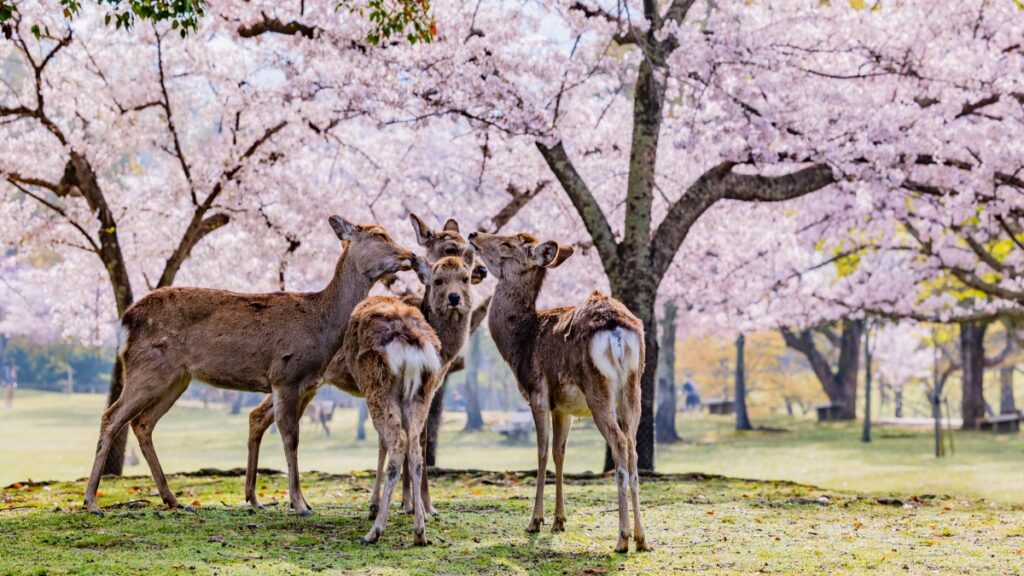
Nara: Ancient Capital of Treasures
Japan’s first capital city is worth spending at least a whole day to see. Established in 710 CE, Nara packs extraordinary cultural significance into its compact historic core. The city is easily accessible as a day trip from Kyoto (just 45 minutes by train) or Osaka (about 30 minutes), though I recommend staying overnight to experience the peaceful atmosphere after day-trippers depart.
The amazing Tōdai-ji holds Japan’s biggest bronze Buddha inside what is the largest wooden building on earth. This temple complex opens at 8 am, and arriving within the first hour provides a more contemplative experience before tour buses arrive. The scale of both the building and the Buddha figure creates an unforgettable impression.
Tame deer roam freely throughout Nara Park, creating charming interactions for visitors. These animals are considered sacred messengers of the gods, and special crackers for feeding them are sold throughout the park. Morning visits around 8-9 am or evening visits after 4 pm offer the best opportunities for peaceful deer encounters when the animals aren’t overwhelmed by midday crowds.
History lovers will appreciate the Kasuga Taisha shrine with its hundreds of bronze lanterns that are illuminated during special festivals. The walking path to the shrine takes you through primeval forest that feels worlds away from urban Japan, creating a spiritual atmosphere that has changed little over the centuries.
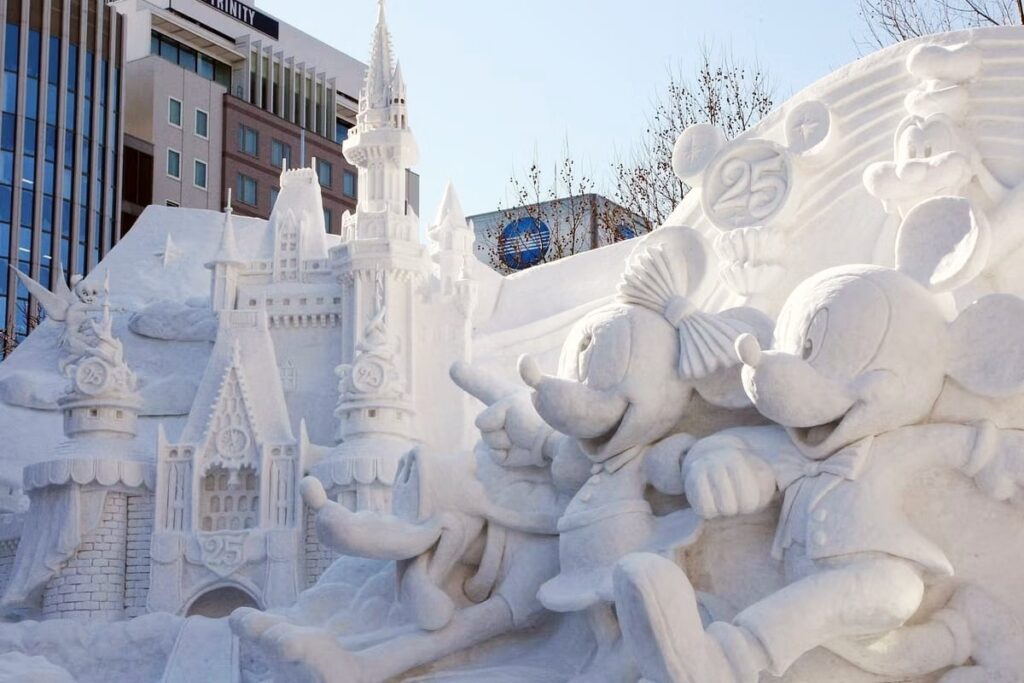
Sapporo: Among the Coolest Cities in Japan for Celebrations
Northern Japan’s largest city offers a completely different atmosphere from its southern counterparts. As Hokkaido’s capital, Sapporo combines urban comforts with easy access to some of Japan’s most spectacular natural landscapes. Winter visitors between late January and early February can experience the famous Sapporo Snow Festival, when the city transforms into an outdoor gallery of intricate ice sculptures.
Beer enthusiasts should visit the original Sapporo Beer Museum, which traces the history of Japan’s oldest beer brand since its founding in 1876. The museum offers tours throughout the day, with the added bonus of tastings. I’ve found midweek mornings around 10 am provide the most relaxed experience with smaller crowds.
Food exploration becomes a highlight in Sapporo, particularly its renowned miso ramen. This hearty soup featuring butter, corn, and miso-flavored broth provides perfect sustenance during Hokkaido’s cold months. Ramen Alley in the Susukino district concentrates dozens of exceptional noodle shops in one convenient location, best visited around 2 pm to avoid both lunch and dinner rushes.
Summer visitors can enjoy the city’s abundant green spaces, including Odori Park – a green belt stretching through downtown that hosts various festivals throughout the warm season. The park transforms entirely with each season, making it worth visiting regardless of when your travels bring you to Sapporo.
Planning Your Journey Through the Coolest Cities in Japan
When mapping out your exploration of the coolest cities in Japan, consider how seasonal changes affect each destination. Cherry blossom season (late March to early April) brings extraordinary beauty but also larger crowds and higher prices. Autumn foliage (November) offers equally stunning visuals with slightly more manageable visitor numbers.
Train travel connects most of these remarkable destinations with efficiency and comfort. The Japan Rail Pass, which must be purchased before arriving in Japan, provides excellent value for travelers planning to visit multiple cities. The pass covers most shinkansen (bullet train) routes, allowing you to maximize your time experiencing these diverse urban landscapes rather than navigating transportation logistics.
Cultural immersion happens best when you allocate enough time in each location. While Tokyo deserves at least four full days, smaller cities like Nara can be experienced meaningfully in a single day. When planning your itinerary through the coolest cities in Japan, resist the temptation to rush – fewer destinations explored deeply often creates more meaningful memories than a whirlwind tour attempting to see everything.
Language barriers need not deter you from venturing beyond the well-trodden tourist paths. Major transportation hubs and popular attractions typically offer English signage, while translation apps can help bridge communication gaps in more local establishments. Learning a few basic Japanese phrases demonstrates respect for the culture and often results in warmer interactions with locals.

